Responding to the United Nations Climate Change 26th Conference of the Parties (COP26) in Glasgow, United Kingdom, the DRAGON-Mekong Institute at Can Tho University, in collaboration with the Arcadis organization (Netherlands), hosted a webinar on "Governance on Land Subsidence and Groundwater Management in the Mekong Delta with special focus onCan Tho, Hau Giang, and Vinh Long" on November 4th, 2021, under the sponsorship of the Netherlands Enterprise Agency.
Participants attending the webinar included representatives from the People's Committee of the provinces/city, the Department of Agriculture and Rural Development, the Department of Natural Resources and Environment, the Department of Industry and Trade, the Department of Construction, the Water Supply Company, the Women's Union, the Farmers' Union, as well as scientists from engineering, water management, geology, and other related fields.
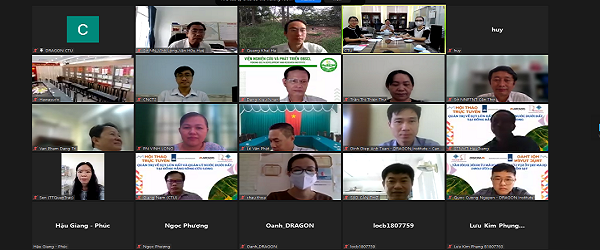
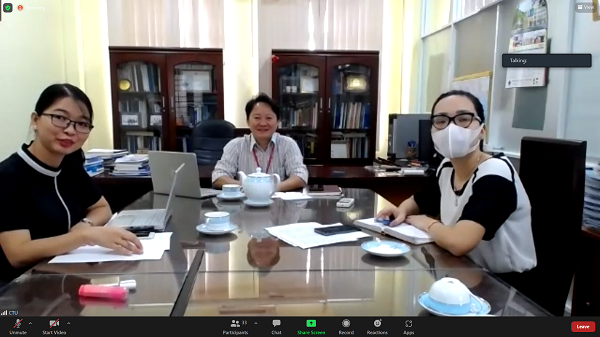
Assoc. Prof. Dr. Van Pham Dang Tri, Vice Director, DRAGON-Mekong Institute, Can Tho University delivered the webinar’s opening speech.
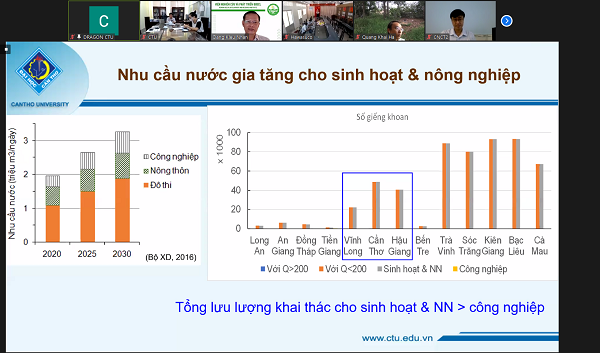
Dr. Dang Kieu Nhan, Director of the Mekong Delta Development Research Institute at Can Tho University, spoke on governance and societal challenges in groundwater exploitation and land subsidence.
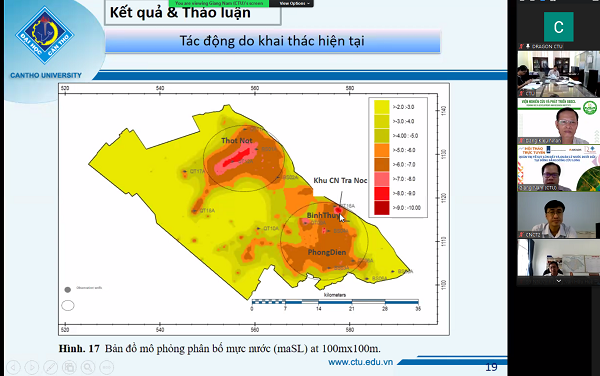
Dr. Nguyen Dinh Giang Nam, Head of Water Resources Department, College of Environment and Natural Resources, Can Tho University, discussed technical issues and groundwater resource management.
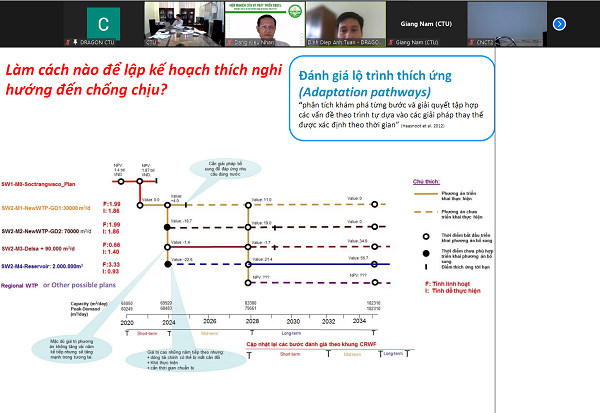
Dr. Dinh Diep Anh Tuan - Chief of Office, DRAGON-Mekong Institute, shared about "Climate adapt to resilience: Water supply in the Mekong Delta”
During the discussion session, representatives from the provinces/cities presented challenges related to groundwater resources and land subsidence in their respective areas and the Vietnamese Mekong Delta as a whole, as well as proposed various ideas for the sustainable use of groundwater resources.
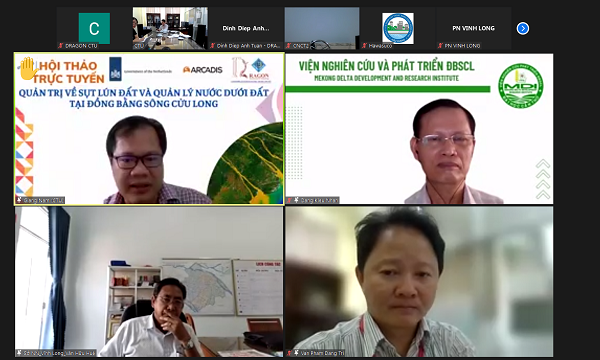
Mr. Van Huu Hue, Deputy Director of Vinh Long Province's Department of Agriculture and Rural Development, discussed the governance condition and provided solutions to groundwater management difficulties in the area.
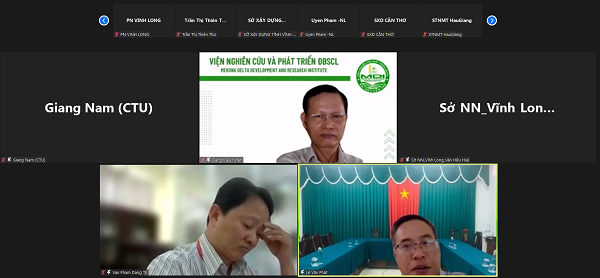
Mr. Le Van Phat - Representative of the Department of Natural Resources and Environment of Can Tho City shared the situation of groundwater management in the locality.

Mr. Pham Duc Huy, a representative from the Hau Giang province's Natural Resources and Environment Department, spoke about groundwater resources and local land subsidence issues.
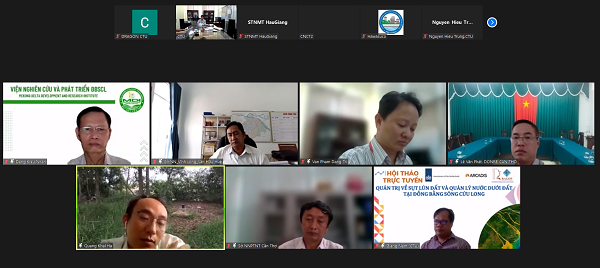
Dr. Ha Quang Khai, Faculty of Environment and Natural Resources, Ho Chi Minh City University of Technology, spoke about the Mekong Delta's land subsidence problem.
The websites of the Mekong Delta Climate Change and Environmental Protection Network (MekongNet) and the project are regularly updated, providing a platform for experts to exchange and connect with the community, local politicians, scientists, companies in the Delta with similar interests, a Community of Interest (CoI), and a Community of Practice (CoP).

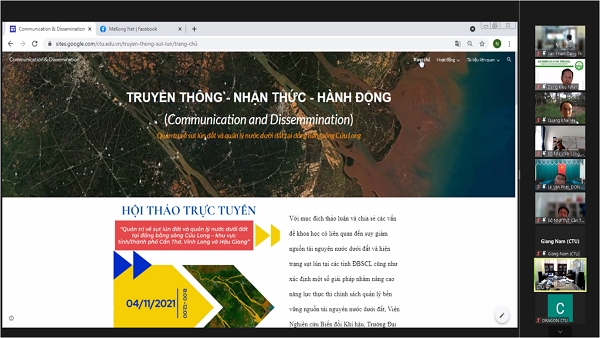
The webinar introduced the online platforms for the experts networking with the community, local politicians, scientists, and companies in the Mekong Delta.
As a result of the workshop, several policy recommendations could be found, including:
Policies:
- The government has issued Decree No. 167/2018 on restricting groundwater extraction and enhancing effective groundwater usage, followed by other relevant documents. However, there is a lack of specific solutions for coastal areas in terms of using effective surface water resources; groundwater still plays a major source for various activities. To deal with these problems, numerous parties must collaborate to build delta-scale solutions.
- To limit groundwater extraction, surface water resource usage should be encouraged. Numerous technological, economic, and political initiatives should be devised and implemented in accordance with an allowed specific planning.
- Encourage and expand the scope of research on groundwater recharge, as well as develop the research results into practice.
Techniques:
- Considering appropriate artificial groundwater recharge options, such as rainwater harvesting and pumping to the aquifer.
- Building large-scale groundwater extraction stations with adequate capacity, prohibiting indiscriminate exploitation, and managing and supplying water efficiently.
- Building freshwater reservoirs in natural floodplains (Long Xuyen Quadrangle and Dong Thap Muoi), as well as utilizing existing natural rivers that are no longer available for water traffic flow, to ensure surface water supply and reduce the need for groundwater extraction.
Networking:
- Developing an online platform that allows scientists, policymakers, and other related organizations to communicate effectively with the proper and updated information.
